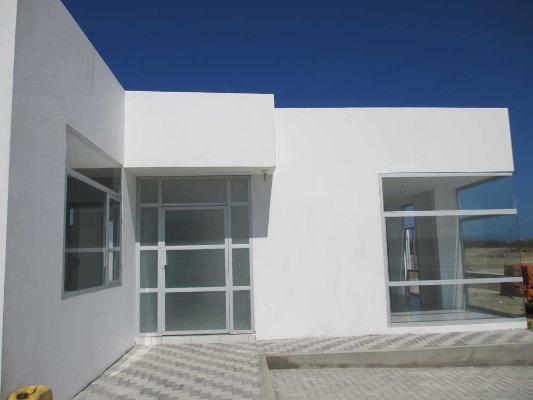Albanian mafia battles Mexican drug cartels in Guayaquil, recruits boys as young as 10 as hitmen
By Liam Higgins
When Dashi Ergys was shot to death in an upscale Guayaquil restaurant in January, the media provided little information about him other than that he was Albanian. Despite the fact that he appeared to be specially targeted, many people assumed he was a tourist who happened to be in the wrong place at the wrong time.

A 16-year-old arrested for murder in Guayaquil turns his back to the camera.
It was more than a month later that a National Police commander revealed in comments during a radio interview that Ergys was under investigation for drug trafficking and that he was probably part of an Albanian mafia operating in Guayaquil, Manta and Esmeraldas, involved in shipping illegal drugs to Europe.
According to Colombian criminologist Rafael Santos, Ergys’ murder and the revelation that the Albanian mafia is operating in Ecuador is only part of a much bigger picture. “There is a great deal of background to the story that is mostly unknown to the public,” he says. “First, there is a turf war underway between the Mexican cartels and the criminal gangs they control, and the Albanians. A large percentage of the murders in Guayaquil and Manta are a result of the conflict.”
Santos says that as much as 60% of the illegal drugs – mostly cocaine but other drugs too, including fentanyl – leaving Ecuadorian ports are destined for Europe. “This is different than the situation in Colombia and Mexico, where most shipments are going to the U.S.,” he says. “This is why the Albanians are here. They control a large part of the drug traffic in Europe and believe they should be in charge of the Ecuadorian shipments.”
Santos adds: “If you keep up with the news, you have probably heard of the large drug busts of Ecuadorian shipments in Amsterdam, Bergen and London.”
Ergys is not the only Albanian casualty of the drug wars, Santos says. “Four other Albanians have been killed, hitman-style, since 2020, as well as a Serbian who worked with the mafia.”
Also little known by the Ecuadorian public is that many of the contract murders near Ecuadorian ports are carried out by young boys. In an investigative article published last week by the British newspaper The Telegraph, reporter Mathew Charles, wrote that the Albanian mafia recruits “ghetto boys” to attend a school for assassins. “Every day between 5 p.m. and 9 p.m., children as young as 10 gather on the concrete football pitch in the northern Pascuales district of Guayaquil to learn how to murder,” he writes.
When asked about the Charles’ claim, the National Police command in Guayaquil at first called it a “wild rumor” but later admitted they had received reports of the training. Police records in Guayaquil show, in fact, that boys ranging in age from 11 to 14 have been arrested for contract murders and that almost all of those arrested are under the age of 20.
According to Charles, the young recruits receive as much as six months of training in gun-handling and the proper way to kill. As part of their initiation, he says students are required to murder a member of competing gang.
For his article, Charles interviewed a 16-year-old named Juan who says he has killed at least 45 people. “We have no future and no hope and these people give us money,” he said. “We really have no choice. If we refuse to join, they will kill us and if they don’t someone else will.” Juan added that he expects to be dead in five years. “To someone somewhere, I’m just another score to settle.”
The Telegraph is not the only news outlet to report on training programs for young killers. In June, Ecuadorian news website Primicias wrote of a hitman school in the Guayaquil paroquia of Guasmo Sur although it suggested the school was operated by a Mexican cartel, not the Albanians.
According to Santos, there is no easy solution for ending the deadly competition between the Albanians and the Mexican cartels — or of the recruitment of young killers. “What can be said is that Ecuador is in a much better position than Colombia and Mexico,” he says. “The drugs are not grown or manufactured here so all the criminal activity is focused on shipment. If the government can stop the activity at the ports, and the corruption that allows it to occur, the other crime will begin to decline.”





















